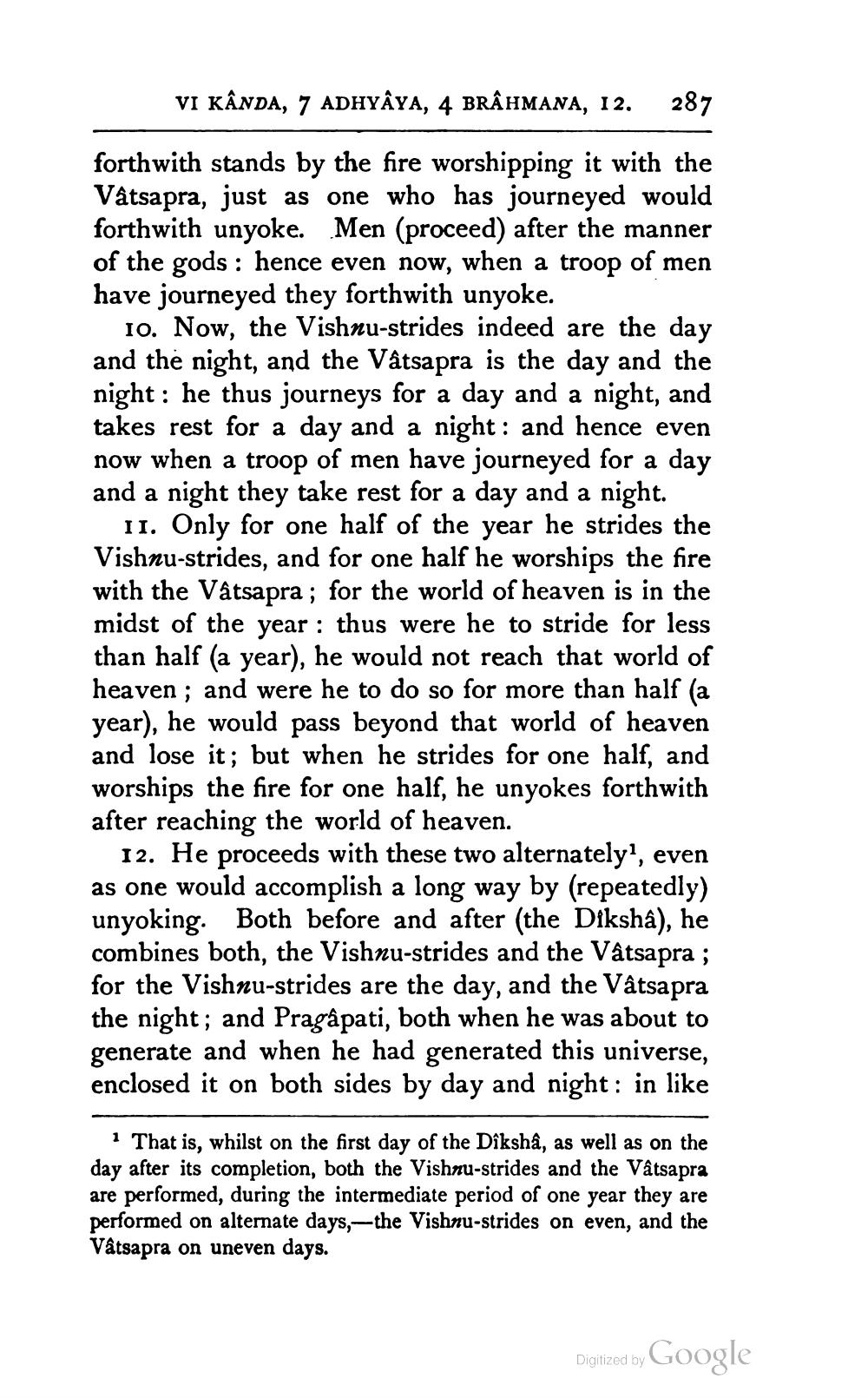________________
VI KÂNDA, 7 ADHYAYA, 4 BRÂHMANA, 12.
287
forth with stands by the fire worshipping it with the Vatsapra, just as one who has journeyed would forthwith unyoke. Men (proceed) after the manner of the gods : hence even now, when a troop of men have journeyed they forthwith unyoke.
10. Now, the Vishnu-strides indeed are the day and the night, and the Vâtsapra is the day and the night: he thus journeys for a day and a night, and takes rest for a day and a night: and hence even now when a troop of men have journeyed for a day and a night they take rest for a day and a night.
11. Only for one half of the year he strides the Vishnu-strides, and for one half he worships the fire with the Vatsapra; for the world of heaven is in the midst of the year : thus were he to stride for less than half (a year), he would not reach that world of heaven; and were he to do so for more than half (a year), he would pass beyond that world of heaven and lose it; but when he strides for one half, and worships the fire for one half, he unyokes forthwith after reaching the world of heaven.
12. He proceeds with these two alternately, even as one would accomplish a long way by (repeatedly) unyoking. Both before and after (the Diksha), he combines both, the Vishnu-strides and the Vatsapra ; for the Vishnu-strides are the day, and the Vâtsapra the night; and Pragâpati, both when he was about to generate and when he had generated this universe, enclosed it on both sides by day and night : in like
1 That is, whilst on the first day of the Dîkshâ, as well as on the day after its completion, both the Vishnu-strides and the Vâtsapra are performed, during the intermediate period of one year they are performed on alternate days,—the Vishnu-strides on even, and the Våtsapra on uneven days.
Digitized by Google




